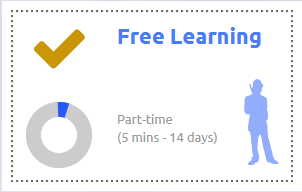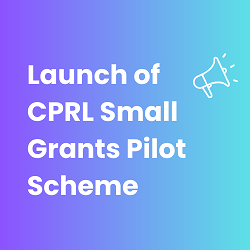You are here
- Home
- Learning
- Free Learning
- Psychology
Psychology

These free resources are organised into categories aligned to the College of Policing Curriculum and in agreement with police experts. You can study them at any time and anywhere.
Select the duration of study below and you will be taken to resources that match that duration
| 1-7 Hours of study | More than 7 hours of study |
|---|
1-7 hours of study
Making decisions
Do you hate making decisions? Does the ability of others to make snap decisions really frustrate you? This course will help you to think in broad ways about how you and others take decisions. It will help you understand the process involved in decision-making, with attention to the psychology of decision-making and social context in which decisions are made.
Type of activity: Course
Motivation and factors affecting motivation
This course explores the term 'motivation' and factors affecting motivation. This includes looking at the most influential theories of motivation that contribute to understanding the causes of motivation. The motivation of sports people and people working in sport and fitness environments are used to help understand the theories presented.
Type of activity: Course
Psychological research, obedience and ethics
This course teaches you about the importance of ethics in research that is undertaken by psychologists. You will read about the famous study on obedience conducted by Stanley Milgram, and watch two psychologists talk about their research with meerkats and chimpanzees. Giving you an understanding into the ethical issues concerning research involving non-human animals.
Type of activity: Course
Starting with psychology
Humans are a puzzle, one that is complex, subtle and multi-layered, and it gets even more complicated as we evolve over time and change within different contexts. Psychologists have put forward a range of explanations about why people feel, think and behave the way they do. New evidence is evolving all the time, making it difficult to pin down all the many influences; this course makes a start.
Type of activity: Course
Themes in discourse research: The case of Diana
This course introduces some of the main themes and issues in discourse research using Martin Bashir's famous interview with Diana, Princess of Wales as a case study. Through this it examines the role of discourse in shaping social interaction and its psychological implications for the study of minds, selves and sense-making. The course aims to demonstrate that in studying discourse we cannot help but study social life.
Type of activity: Course
More than 7 hours of study
Forensic Psychology
Explore how your own mind works, and discover how the limitations of the human brain can lead to major miscarriages of justice. Using videos of real witnesses and from cameras that go behind the scenes of a police investigation, this course explores the psychology of eyewitness testimony. It will test your own cognitive skills, as you try to solve a crime using nothing but evidence from eyewitnesses.
Type of activity: Course
Forensic Psychology: Witness Investigation
Explore how your own mind works, and discover how the limitations of the human brain can lead to major miscarriages of justice. Using videos of real witnesses and from cameras that go behind the scenes of police investigations, this course explores the psychology of eyewitness testimony. You are expected to spend around 3 hours of your time a week, over this 8 week course.
Type of activity: Course
Minds and mental phenomena: An introduction
This course examines the philosophical questions surrounding the mind. You will examine how beliefs have changed over the centuries and be able to contrast the views of Descartes with more modern ideas. The course considers what is involved in having a mind, whether there are different kinds of minds, and whether there is some characteristic that is shared by all mental phenomena.
Type of activity: Course
News
- New course launched on “Understanding PCSO powers” 14th March 2024
- CPRL Collaborative dates for your diary 28th February 2024
- Government backs new pet abduction law in pet theft crackdown 8th February 2024
Upcoming Events
Online Seminar: Trust and confidence in policing
Wednesday, May 22, 2024 - 13:00 to 14:30
Online Membership Group Meeting
Thursday, June 13, 2024 - 10:30 to 12:30
